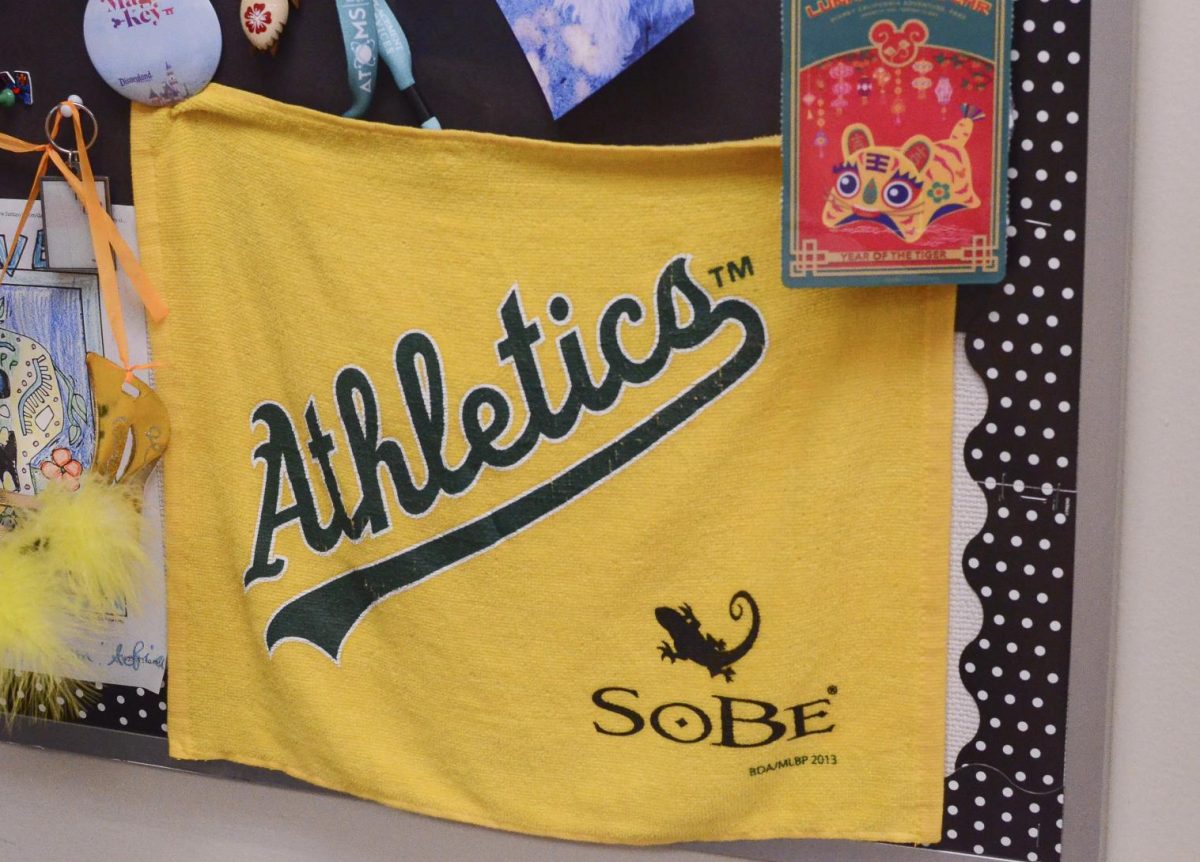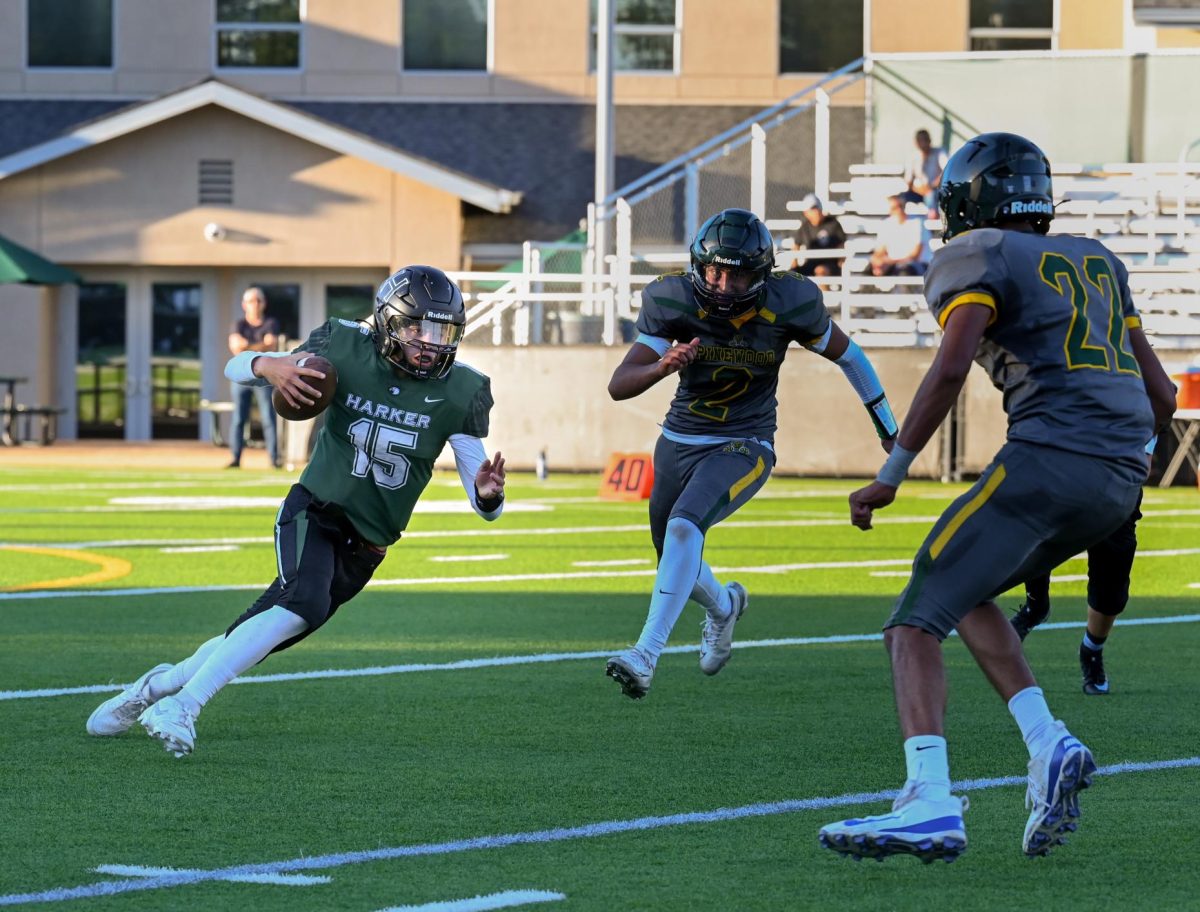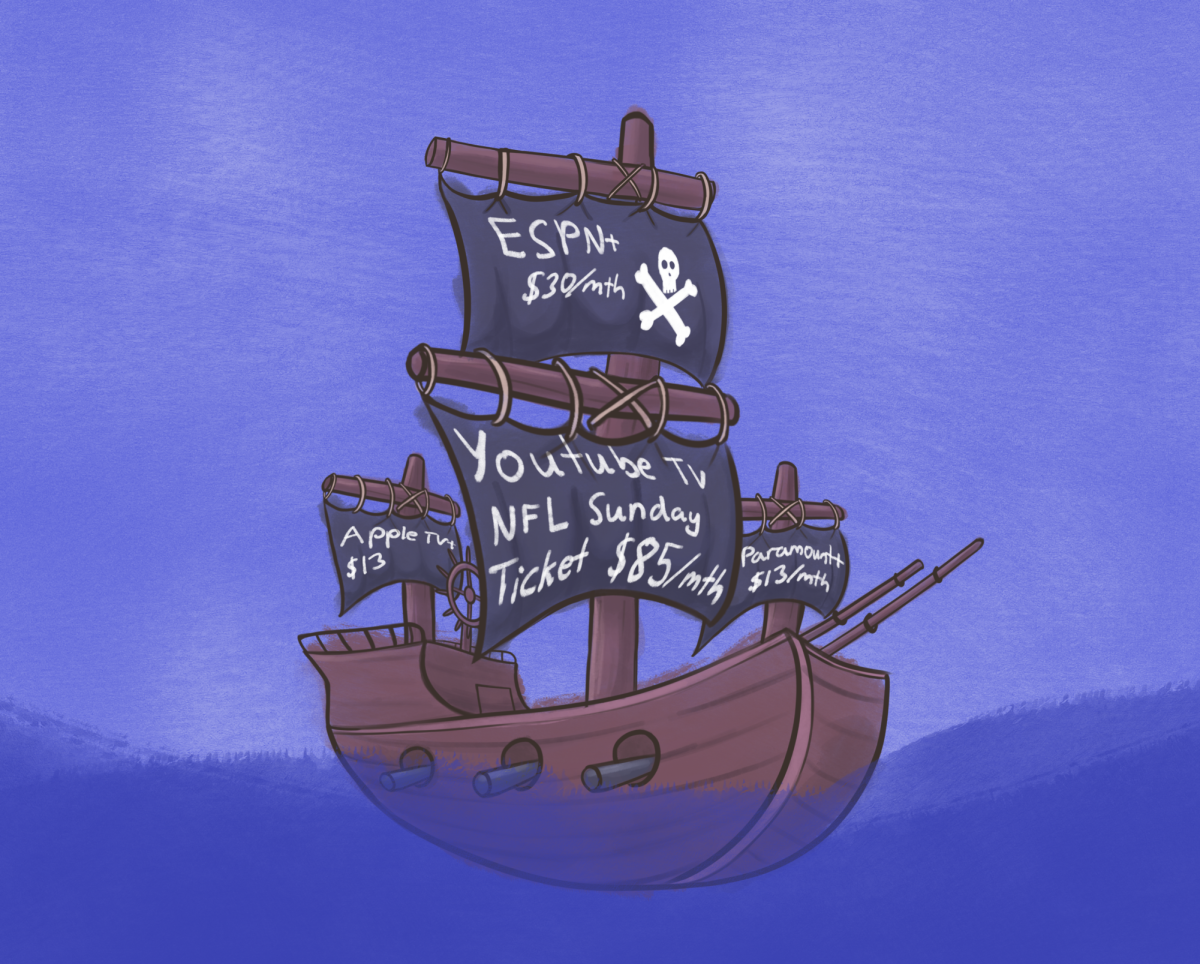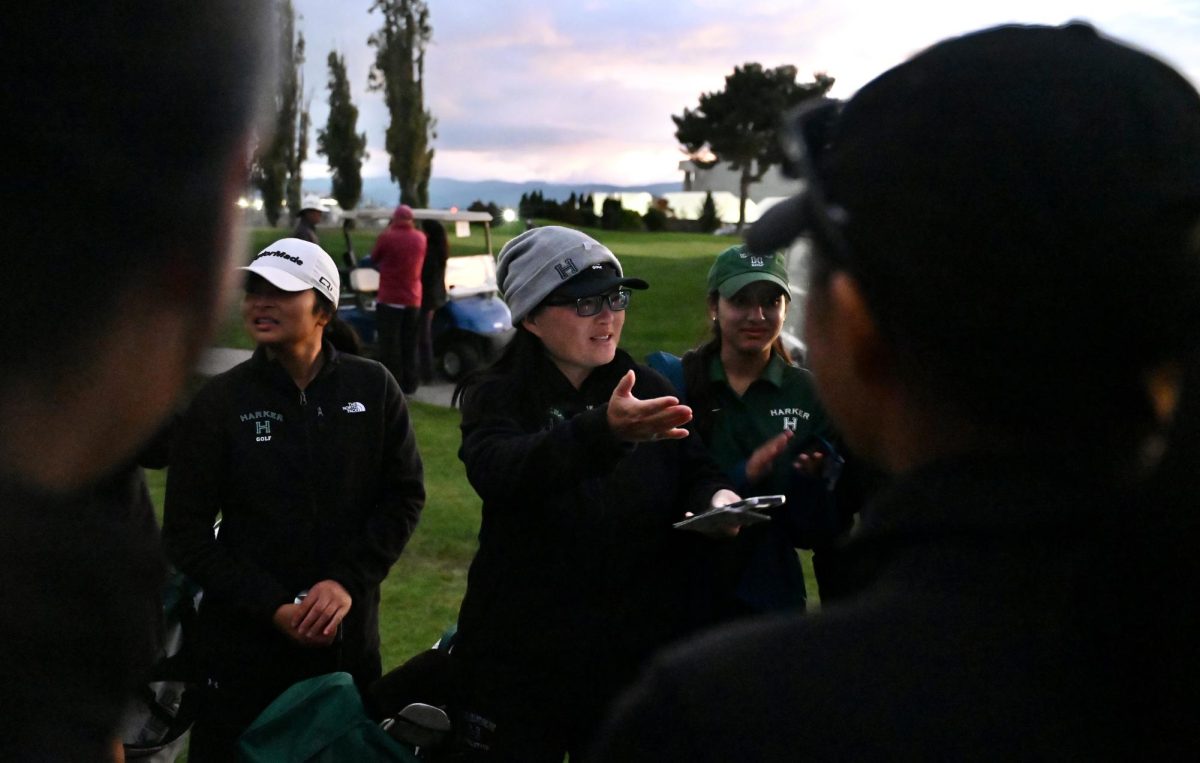When Oakland Athletics pitcher Trevor May went live on Twitch to announce his retirement, fans expected him to go quietly. As a pitcher with a career earned-run average of 4.24, few noticed his send-off event. After offering the standard thanks to his family, teammates and fans, May began to criticize the A’s ownership, sparking intense debate.
“To the A’s organization and every single person part of it, I love all of you,” May said in his speech. “Every single one of you except for one guy. And we all know who that guy is.”
The “one guy” May referenced is A’s owner John Fisher. The team, led by Fisher and president Dave Kaval, announced a move to Las Vegas in 2028. On Nov. 16, the 29 other owners officially approved the move, and Fisher made a statement apologizing to local fans.
While team owners usually maintain lifelong ownership, routine mismanagement and the threat of the Vegas move incited major criticism from across the league. Fans, critics and even players demanded that Fisher sell the team.
This critique of Fisher’s ownership is nothing new for the Oakland faithful. The A’s have not won a World Series since 1989 and have not approached a title shot since Fisher and Lew Wolff bought the franchise in 2005. Historically, the A’s have been a small-market franchise, even inspiring the movie “Moneyball,” written about their ability to find underrated, cheap players in 2004.
Since Fisher took over, the team has spent less money on upgrading the roster each year. Other teams also caught on to the “Moneyball” methods, which put the A’s at a further disadvantage. Recently, the team spent their offseasons trading away All-Star caliber players like Matt Chapman, Matt Olson and Sean Murphy for cheaper, younger options that failed to pan out. This strategic failure angered baseball fans, who cite Fisher’s greed as the true motivation behind the lack of spending.
“[Fisher] does not respect the fans,” baseball fan Jack Ledford (12) said. “Those are the people that make him his money, and he does not look out for them. He is more selfish than other owners. He runs [the team] like an asset, while other owners run it using their passion for the team and for baseball.”
The A’s finished 2023 with a league-worst 50-112 record. This flop, combined with the poor facilities at the Oakland Coliseum, led to record lows in attendance, which the organization cited as a major concern fueling the move.
On Aug. 5, A’s fans decided to try to disprove the team’s claims once and for all. Spectators packed the Coliseum in what came to be known as a “reverse boycott,” an attempt to prove that fans would show up when the team could compete.
Featuring organized live music and food trucks in the parking lot, the event made headlines across the baseball world. It also served as the first occasion of its kind in baseball history, attracting both the Oakland faithful, many of whom witnessed the Oakland Raiders leave the Coliseum for Las Vegas in 2020, as well as fans who shared their sentiments.
“After the A’s inevitably leave, there will be no sports at that Coliseum,” reverse boycott attendee Richie Amarillas (‘22) said. “As a Raider fan who used to go every Sunday in the fall, I will always have dozens of memories connected to that stadium. I don’t know when I’m going to go back again. So I figured why not? I’ll check it back out and go to a place I once loved.”
The event signified more than the unity of baseball fans willing to protest poor ownership decisions. It celebrated the vibrant Oakland sports community, who after losing multiple teams to other cities, will now be without a major professional sports team for the first time in 65 years. The move leaves a vacancy in the hearts of fans, many of whom are attached to the team for reasons beyond baseball.
“I became an A’s fan when I started dating my husband,” math teacher Jeannette Fernandez, who has gone to A’s games for thirty years, said. “I started watching the games because he was a big fan. That’s what we did on dates. Our kids grew up as fans, too. We’re an A’s family.”

Fan attachment to the team cannot be quantified in the way that Fisher and the franchise calculated revenue, or even in the number of people that showed up to the Reverse Boycott. The true value of the Oakland Athletics, just like any sports franchise, lies in the team’s ability to create memories and experiences for fans.
“This is what people don’t always acknowledge when they talk about sports teams moving,” Richie said. “You lose those memories, not that the old ones are gone necessarily, but you can’t create any more of those memories with your kids or with your family or with your friends anymore. Looking at it from that perspective, it hurts.”




![LALC Vice President of External Affairs Raeanne Li (11) explains the International Phonetic Alphabet to attendees. "We decided to have more fun topics this year instead of just talking about the same things every year so our older members can also [enjoy],” Raeanne said.](https://harkeraquila.com/wp-content/uploads/2025/10/DSC_4627-1200x795.jpg)


















![“[Building nerf blasters] became this outlet of creativity for me that hasn't been matched by anything else. The process [of] making a build complete to your desire is such a painstakingly difficult process, but I've had to learn from [the skills needed from] soldering to proper painting. There's so many different options for everything, if you think about it, it exists. The best part is [that] if it doesn't exist, you can build it yourself," Ishaan Parate said.](https://harkeraquila.com/wp-content/uploads/2022/08/DSC_8149-900x604.jpg)




![“When I came into high school, I was ready to be a follower. But DECA was a game changer for me. It helped me overcome my fear of public speaking, and it's played such a major role in who I've become today. To be able to successfully lead a chapter of 150 students, an officer team and be one of the upperclassmen I once really admired is something I'm [really] proud of,” Anvitha Tummala ('21) said.](https://harkeraquila.com/wp-content/uploads/2021/07/Screen-Shot-2021-07-25-at-9.50.05-AM-900x594.png)







![“I think getting up in the morning and having a sense of purpose [is exciting]. I think without a certain amount of drive, life is kind of obsolete and mundane, and I think having that every single day is what makes each day unique and kind of makes life exciting,” Neymika Jain (12) said.](https://harkeraquila.com/wp-content/uploads/2017/06/Screen-Shot-2017-06-03-at-4.54.16-PM.png)








![“My slogan is ‘slow feet, don’t eat, and I’m hungry.’ You need to run fast to get where you are–you aren't going to get those championships if you aren't fast,” Angel Cervantes (12) said. “I want to do well in school on my tests and in track and win championships for my team. I live by that, [and] I can do that anywhere: in the classroom or on the field.”](https://harkeraquila.com/wp-content/uploads/2018/06/DSC5146-900x601.jpg)
![“[Volleyball has] taught me how to fall correctly, and another thing it taught is that you don’t have to be the best at something to be good at it. If you just hit the ball in a smart way, then it still scores points and you’re good at it. You could be a background player and still make a much bigger impact on the team than you would think,” Anya Gert (’20) said.](https://harkeraquila.com/wp-content/uploads/2020/06/AnnaGert_JinTuan_HoHPhotoEdited-600x900.jpeg)

![“I'm not nearly there yet, but [my confidence has] definitely been getting better since I was pretty shy and timid coming into Harker my freshman year. I know that there's a lot of people that are really confident in what they do, and I really admire them. Everyone's so driven and that has really pushed me to kind of try to find my own place in high school and be more confident,” Alyssa Huang (’20) said.](https://harkeraquila.com/wp-content/uploads/2020/06/AlyssaHuang_EmilyChen_HoHPhoto-900x749.jpeg)
















